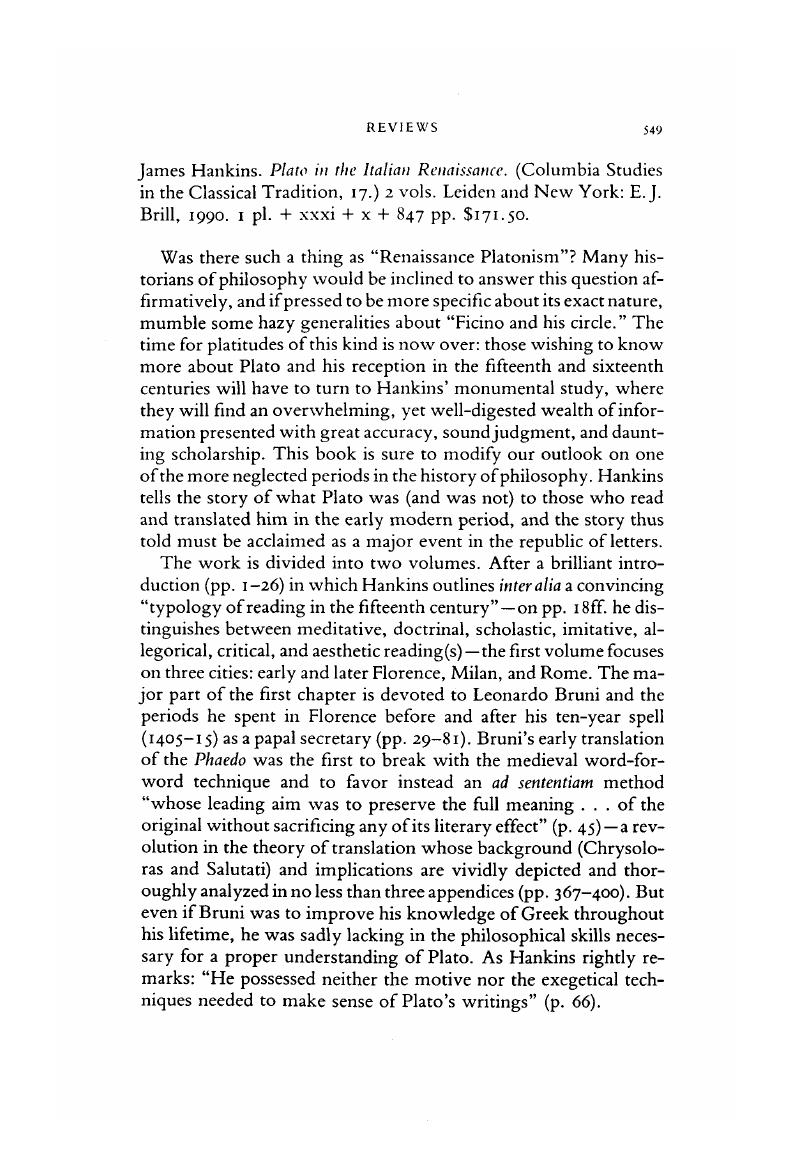No CrossRef data available.
Published online by Cambridge University Press: 20 November 2018

1 On the strength of a testimony in Diogenes Laertius, Ficino attributed the Axiochus to Xenocrates. Hankins states (p. 307, n. 104) that in the sixteenth century only Guillaume Postel and Johannes Dugo accepted his attribution. One can add, however, at least one anonymous scholar (or copyist) who seems to have believed in Xenocrates’ authorship as well: the MS Leiden Voss. 8° 20, containing Ax. 366 b 5 ff. in Greek and written in a sixteenth-century hand, is inscribed μετάϕϱασις πεϱί θανάτου άπò τού ζενοχϱάτους (fol. 1). The history of the diffusion of the Axiochus deserves a thorough study, since it seems to have been one of the most popular and successful “Platonic” dialogues from c. 1450-1600.
2 E.g., pp. 152 bottom/153 top; 178 b./i79 t.; 211 b./2i2t.
3 P. 113: “the mind of a the wise man is impassible.“
4 Only two extreme examples for countless others: σύν (for σύν: p. 224, n. 151); ϊαν(for öτaν: p. 468, last line).
5 E.g., p. 307, n. 102: Did Ficino really write “in his own hand” τέƛoς των νοθευóμενoν (in which case Hankins should at least have added a sic), or does the gloss rather read νoθϵυομένωων—? The plural of πάθoς is πάθη, not πάθoι (p. 205).
6 Especially if they can apparently be printed, as is proven on p. xiv (“Universitätsbibliothek“). According to the convention here adopted, W. Rüegg ought to have appeared as Rueegg (instead of Ruegg: p. 60, n. 70)—surely a most unseemly spelling! There are other minor errors (especially in the French), but few of them are really disfiguring. It should finally be noted that the Didaskalikos is misquoted as Didaskalos (p. 207, n. 98), and that on p. 226 the title of Petrarch's anti-Averroistic treatise should read the same as on p. 34 (despite the title it was given in the 1581 Basel edition of the Opera).